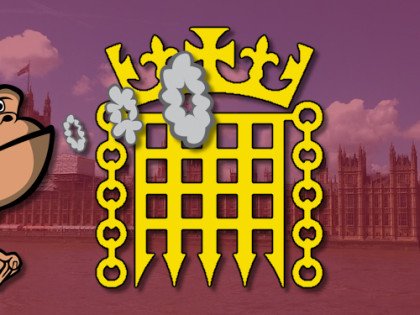On Tuesday 7th April, the House of Lords debated tobacco control amendments to the Health and Care Bill. The amendments would have required the Government to carry out a consultation on the recommendations formed from Javed Khan’s Independent Review of Smokefree 2030 policies.
The debate was led by Lord Crisp (Crossbench) and supported by two former health ministers, Lord Young of Cookham (Conservative) and Lord Hunt of Kings Heath (Labour). The debate also featured Lord Rennard (Liberal Democrat) and Lord Kamall (Parliamentary Under-Secretary of State for Innovation).
The tobacco amendments stated:
- Department of Health and Social Care to consult on recommendations of the Khan Independent review which is due to report shortly with recommendations for the forthcoming Tobacco Control Plan to deliver the Government’s Smokefree 2030 ambition (and any other options considered appropriate by the Secretary of State)
- Department of Health and Social Care and Her Majesty’s Treasury to consult on one or more statutory schemes to fund delivery of the Smokefree 2030 ambition
- Ministerial report back to parliament within a specified time frame on steps to implement findings of the consultations with proposed timescales.
The Government opposed measures to make it accountable and open. The opposition to the amendments won out and defeated the proposals by 2 votes (130 v 132). The Lords’ amendments were removed from the Bill.
In the House of Commons, as part of Parliamentary Questions about oral tobacco and cardiovascular disease, Mary Glindon, Labour MP for North Tyneside, asked the Secretary of State for Health and Social Care what assessment he has made of the implications for his policies of the study published in the Nicotine & Tobacco Research journal in January 2022 which found that snus is not associated with cardiovascular disease.
Responding on behalf of the Secretary of State, Public Health Minister Maggie Throup said: “No specific assessment has been made.”
In related matters, Adam Afriyie MP has written an article for Politics Home. In his piece, Afriyie argues that the government is carrying out a “scatter-gun approach to be smoke-free” and will fail to meet its 2030 ambition.
He states that government efforts to encourage smokers to leave tobacco for reduced harm alternatives “is failing”.
“It must encourage smokers to access a wider range of non-combustible, smoke-free alternatives to traditional cigarettes, to help them stub out this habit for good.
“Such products include vapes, but also nicotine pouches and heat-not-burn products. By focussing less on the presence of the shibboleth tobacco in a product, but more on the presence of harm through combustion – the harmful element of smoking cigarettes – this would send a clear message that the UK is world leader in smoking cessation.”
Dave Cross
Journalist at POTVDave is a freelance writer; with articles on music, motorbikes, football, pop-science, vaping and tobacco harm reduction in Sounds, Melody Maker, UBG, AWoL, Bike, When Saturday Comes, Vape News Magazine, and syndicated across the Johnston Press group. He was published in an anthology of “Greatest Football Writing”, but still believes this was a mistake. Dave contributes sketches to comedy shows and used to co-host a radio sketch show. He’s worked with numerous start-ups to develop content for their websites.
Join the discussion
Parliament Fears Two
The Department for Environment, Food and Rural Affairs faced questions from a Conservative MP and, oddly, a member of the Department for Environment, Food and Rural Affairs
Harm Reduction For The Rich
The United Kingdom risks becoming a harm reduction country only for the wealthy, according to Michael Landl of the World Vapers’ Alliance
Scotland Announces Single-Use Vape Action
A ban on the sale and supply of single-use vapes in Scotland is due to come into effect on 1 April 2025, under proposed legislation published today
Parliament
Andrea Leadsom has been quizzed by Rupa Huq and Derek Thomas about the promotion of vaping and support to those who want to quit






-listing400.jpg)




